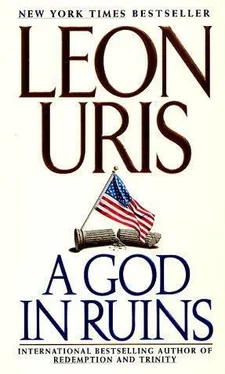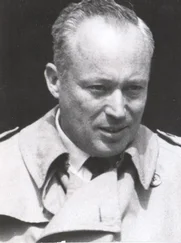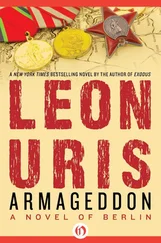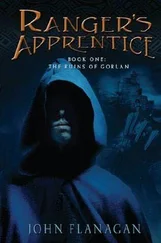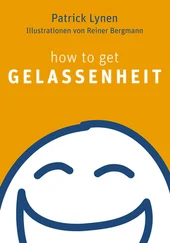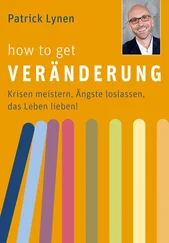And along came Quinn.
“Savior” was too strong a word, but a nation desperate to get off its knees had moved him onto center stage. An enormous media focus on New Hampshire bespoke the arrival of a new force.
In Denver, down by the railroad tracks, a big old warehouse was donated
for use by the O’Connell for President committee. It had long been
derelict as a warehouse and later went belly-up as a disco. Greer corralled an overabundance of volunteers and opened a bank account.
Contributions of office furniture and computers arrived from Chicago to Salt Lake City.
Quinn’s midnight arguments with Maldonado, Greer, and Rita, his most inner circle, took on a legend of their own. The three of them came to realize that with Quinn, it was “the campaign will be my way or the highway.”
Half a candidate’s time was consumed with fundraising among the high and the mighty. No serious candidacy could go far without the major contributors .. . who found unlimited, ingenious ways to bypass the legal donation limits. Quinn made a daring decision on the night he left for New Hampshire.
“I will not take contributions from PACs. I will not accept soft money. Soft money is slimy and difficult to catch, but you know what soft money is and I know what soft money is. I want my candidacy to be supported mainly by contributions from ordinary people. I’m being asked to do a difficult job, and if you think I’m the man, then let me hear from you.”
For the first of many times, one was certain that O’Connell had shot himself in the foot.
However, by the time he hit New Hampshire, a deluge of pledges came in to Quinn, conveniently charged on Diners Club, MasterCard, VISA, Discover, and American Express cards.
BROTHER, CAN YOU SPARE A DIME read the headline. I AM THE
people’s candidate.
Quinn held up his daily press bulletin. On the top were several boxes giving donations of the past twenty-four hours, expenditures, and total in the bank. This degree of openness chilled the American house politic down to the marrow.
At Manchester there was a sudden and urgent feeling of in gathering of
people from Maine and Vermont. They just had to see this fellow. Please, God, make him real. In the winter drearies, the streets were thickly lined, and an unlikely scene unfolded of New Englanders showing public passion.
The pundits dug deeply into the history of the American presidency to find more of a “down-home” candidate: witty, environmentally brilliant, sound on his issues, and completely modest and at ease among the people.
Quinn and Rita skied a treacherous run known as the Oh Shit Trail and ended up on their feet.
Look at that couple!
Was he too good to be true? Have we forgotten the terrible besmirchment of the president’s office in the Clinton era? Have we forgotten the pain? Can we ever trust another politician?
Surely the voters could be venting their pent-up hurt, and surely they could be gambling their own future aspirations. But don’t stop the carnival!
In his town hall meetings, Quinn often shocked with his common sense and candor. He spoke the truth, more than once, to criticize his own failings. Quinn ignited the rebirth of many values thought flown from the society.
The result? Startling! Quinn Patrick O’Connell polled more votes than five other Democrats combined and went head to head with the Vermont governor, running as a favorite son.
Less than a month after the Iowa caucus he had established a legitimacy, even though his insistence on populist financing barely kept the campaign running. The day after New Hampshire was a good day for collections. And, well, it had to be, for there was no time for a pit stop. Quinn and his staff suddenly stared at Fat Tuesday, a few days off.
Fat Tuesday was a coast-to-coast twelve-state primary and caucus with American Samoa thrown in. Quinn might have a foot in the door, but the phone bill had not come in yet.
Quinn needed a strong showing in the Southern states of Georgia and
South Carolina and the quasi-Southern state of Maryland. Unable to visit even a sampling of states, he chose to deliver his message at Emory University in Atlanta.
Through great civic pride, entrepreneurship, leadership, and a migration, the city had become the power center of the South, sophisticated, dancing far into the night, ambitious, and a wonderful place to raise a family.
In the very beginning of his career as a young Colorado state senator, Quinn had been shy as a speaker, but buoyed himself through self-deprecating wit. By the time he won the governorship he had grown into a strong and confident—but measured-speaker.
All things seemed to come together when he arrived in Atlanta as a growing national curiosity. Quinn sensed that the people were longing to hear what he would say. He felt, for the first time, he had the power as an orator to grip his audience.
As Quinn spoke, softly at first, he felt the vibrations, and he fell into a rhythm, dancing a ballet, endowed with a grace, aware of what was happening to him.
Determined not to be labeled a dog with one trick, Quinn set aside the Second Amendment issue and wrote himself a visionary political essay.
Quinn’s staff held their collective breath.
“... we have nurtured a mighty forest of law and values and decency. We are trashing it without planting new trees. Under the disguise of freedom of expression, our boundaries of morality are pushed so far twelve-year-olds know the vulgarisms of our language, or of the explicitness of sexual behavior, or of crime and of drugs. So, have we shed the old hypocrisies, or are we caving in to the claptrap foisted on us by people who are really out to make a buck and will push and push until our sense of disgust is finally stilled?”
Ka-boom! Quinn knew the speech was flying.
“A decade ago, the American people were subjected to listening to a
president forced to give a discourse on oral sex. We swore, never again. But it has happened again and again and again. The nation can no longer afford this prurient blood lust, which is already robbing it of brilliant candidates who no longer want any part of public service.
“The world prays for us, waits for us to get out of the gutter. It is incumbent that each citizen have a long, quiet talk with themselves and not succumb to mendacity.”
Ka-boom! The vibrations from speaker to listener trembled in the air. Quinn departed from the rostrum, microphone in hand and went from side to side of the stage.
“Are we closing out personal relationships, and have we grown distant from one another? We surge on great waves of billions of bytes .. . but do we know each other anymore? We bank, shop, vote, play the market, purchase groceries, fly, vacation, read at the whim of an electronic device that, despite all its miraculous wonderment, has no heart, no soul, no compassion.
“When salvation comes, it will not come in the form of a computer printout but from the Word brought down from Sinai. We must go back to one another and establish the rules of decency.”
It was a strange speech. It hardly seemed political, but more from the pulpit. How did Quinn realize the public’s thirst for a moral direction? Still in mourning over the Four Corners Massacre, they needed a spiritual direction.
Quinn had deftly drawn a line in the sand and taken the moral high ground. Clever or political genius?
Fat Tuesday.
The primaries said that O’Connell was in to stay. He won Maryland by an eyelash, lost Georgia by the same amount, but he polled forty percent of the South Carolina vote. Do the West and South identify with one another? Perhaps in being treated as a cultural wilderness. This stranger from a strange place was no stranger at all.
Читать дальше
